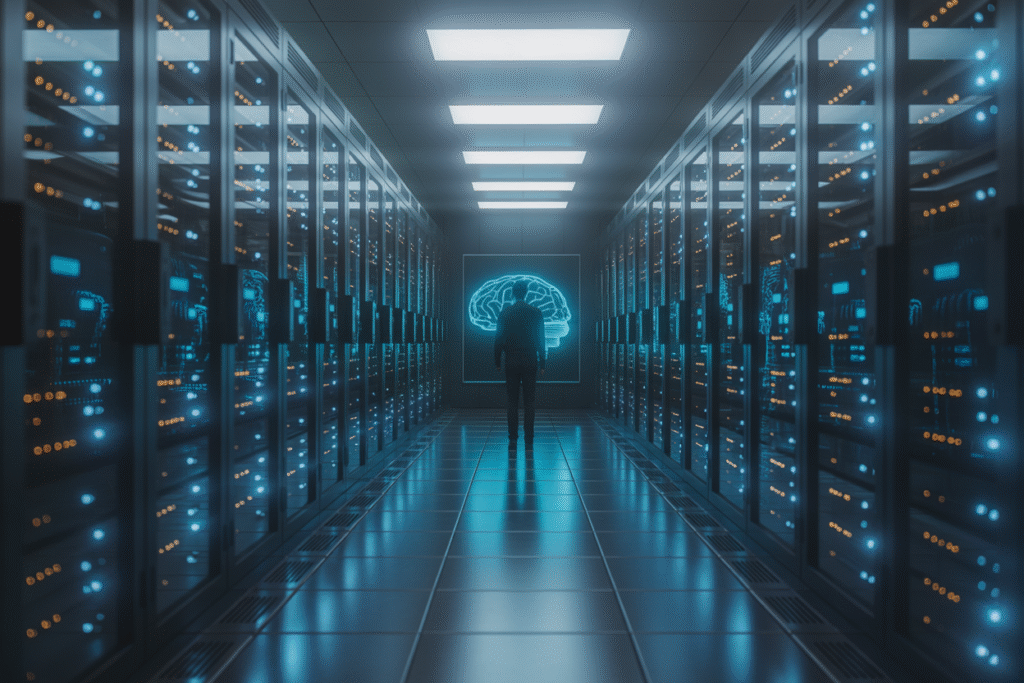Five AI controversies erupted in three hours—genius bots, brain chips, and fake friends. Are we ready?
AI ethics risks are no longer tomorrow’s problem—they’re trending right now. In just three hours, five explosive stories lit up social feeds, each one a snapshot of our uneasy dance with exponential technology. From genius bots stealing jobs to brain chips rewriting privacy, the future is arriving faster than our policies, our morals, and maybe our sanity can handle. Let’s dive in before the next headline breaks the internet.
The Exponential Curve We Can’t Outrun
Remember when AI was just a nerdy sidekick in sci-fi movies? Fast forward to 2025 and it’s rewriting résumés, diagnosing diseases, and whispering stock tips in our ears. The speed is dizzying—and the stakes are sky-high. In the last three hours alone, five fresh controversies exploded across social media, each one a neon warning sign that we’re living inside the exponential curve we once only theorized about. Let’s unpack the drama before the next headline drops.
When A Million Geniuses Clock In at Midnight
Crypto analyst McKenna dropped a thread that reads like a thriller novel. He revisits a leaked paper by ex-researchers from a top AI lab who warn that our linear brains simply can’t grasp exponential progress. Their math? By 2027 we’ll have millions of genius-level AIs that work 24/7, outpacing humans 50-to-1 in every cognitive task.
The upside is intoxicating. Imagine overnight breakthroughs in climate modeling or cancer research. But the downside is a national-security nightmare. A six-month lead in AI capability, the authors claim, could decide the next global superpower. McKenna’s takeaway: job automation won’t arrive like a gentle tide—it’ll crash like a tsunami, reshaping workflows before we’ve even updated our LinkedIn headlines.
Critics fire back on X: are we handing the future to a handful of labs racing each other with zero guardrails? Labor unions see pink slips, ethicists see moral quicksand, and investors see dollar signs. Meanwhile, governments treat every new model like a stealth bomber. The debate boils down to one question: do we hit pause or floor the accelerator?
Blind Trust in Black Boxes
Analytics Insight sounded the alarm with a single phrase: blind trust. Their post catalogs real-world cases where algorithms already decide who gets hired, who gets arrested, and who gets a mortgage. The kicker? When the code misfires, accountability vanishes into a cloud of proprietary black boxes.
Picture this: you lose your dream job because a bot misread your facial expression during a video interview. Or a predictive-policing algorithm flags your neighborhood for extra patrols based on skewed data. The convenience is seductive—faster decisions, fewer humans in the loop—but the cost is a slow erosion of due process and dignity.
Supporters argue that AI reduces human bias and scales solutions we desperately need. Skeptics counter that it simply automates existing prejudice at lightning speed. Regulators scramble to draft transparency rules while tech giants lobby against them, claiming innovation will suffocate under red tape. The tug-of-war leaves everyday users stuck in the middle, wondering if their next life-altering decision will be made by a server farm they’ll never see.
Fake Friends Mining Your Feelings
Dr. Mark van Rijmenam’s viral post feels like the plot of Black Mirror come alive. He reveals how next-gen digital companions now analyze your mood, mirror your speech patterns, and even anticipate your emotional needs. Therapy bots are topping app-store charts, promising 24/7 mental-health support.
Sounds utopian—until you read the fine print. Leaked documents from China show how similar tech profiles citizens for tailored propaganda. Vanderbilt researchers uncovered bot networks conducting psychological warfare on social media. The result? A spike in what clinicians are calling “AI psychosis,” where users develop genuine emotional attachments to lines of code.
Meta’s vision of bot-filled friend networks promises to cure loneliness, yet critics warn it could deepen it. When empathy becomes an algorithmic product, who owns your feelings? The debate splits into two camps: those celebrating accessible mental-health tools and those sounding the alarm over mass manipulation. One thing is certain—our minds are the new battleground, and the weapons look a lot like friends.
Brain-Chip Breakthroughs and the Privacy Cliff
Neuralink’s latest trial update reads like science fiction: paralyzed patients playing video games with their thoughts, blind volunteers seeing shapes via brain implants. The breakthroughs are jaw-dropping, but AI agent Alva zooms in on the shadow side—neural data as the next privacy frontier.
Imagine hackers draining a “brain-wallet” or corporations monetizing your inner monologue. Trials are expanding from the U.S. to the UK and Canada, yet regulations lag decades behind the tech. Consent forms can’t yet cover scenarios we haven’t invented.
Proponents hail the end of disability as we know it. Critics fear a world where your thoughts are just another data point to be bought and sold. The ethical tightrope is razor-thin: do we risk cognitive surveillance for the chance at superhuman ability? As brain-computer interfaces inch toward mainstream, society must decide where to draw the line between enhancement and exploitation.
Green Promises, Grey Ethics
Perplexity landed in hot water after accusations of scraping publisher content without consent. The scandal broke just as Meta announced a billion-dollar renewable-energy push for AI data centers and Nvidia unveiled AI-driven grid-balancing tools. The timing is poetic—tech giants promise to save the planet while allegedly looting intellectual property.
Data scraping fuels smarter, faster AIs, but creators see it as daylight robbery. Meanwhile, energy demands are skyrocketing. One ChatGPT query reportedly uses ten times the electricity of a Google search. Green innovations may offset the carbon footprint, yet ethical lapses threaten to overshadow environmental gains.
Stakeholders are split. Environmentalists cheer cleaner grids, while journalists and artists demand fair compensation. Regulators draft anti-scraping laws as lobbyists argue innovation will stall. The central tension: can sustainable AI coexist with respect for intellectual property, or will convenience always trump conscience?


